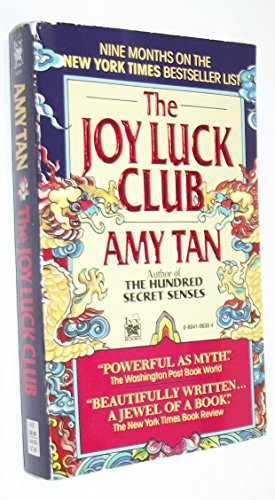
In an article by The New York Times where the publishers embark on a journey to study discrimination against Asian-Americans with Jennifer Lee, a professor of sociology at Columbia University and the author of “The Asian-American Achievement Paradox” and Karthick Ramakrishnan, a professor of public policy and political science at University of California, Riverside, and director of the National Asian-American Survey.

Throughout their whole life, the 4 mothers try their best to ensure the ethnic continuity within their own microcultural structure of their families through the recollection of the past and the tales that they still remembered. In stark contrast to them, their children are well educated in America and are proficient in speaking affluent English. Because they are the first generation of immigrants from China, 4 of them remain as culture aliens to this brand new society due to their lack of proficiency in speaking English. They started a club for them to gather to play Mah Jong and feast on foods together, which is later on known as “The Joy Luck Club”. In 1949 the 4 mothers first met in a Baptist church and went on to play Mah Jong afterward. All 4 of them fled to America some point in their life in search of hope to start over a new life and to forget the past. The 4 mothers portray in the book have all shared painful and heartbroken memories back in the days in China during the Japanese occupation. Saving Earth Britannica Presents Earth’s To-Do List for the 21st Century.The Joy Luck Club is a novel first published by Amy Tan in 1989.100 Women Britannica celebrates the centennial of the Nineteenth Amendment, highlighting suffragists and history-making politicians.COVID-19 Portal While this global health crisis continues to evolve, it can be useful to look to past pandemics to better understand how to respond today.Student Portal Britannica is the ultimate student resource for key school subjects like history, government, literature, and more.This Time in History In these videos, find out what happened this month (or any month!) in history.



Britannica Explains In these videos, Britannica explains a variety of topics and answers frequently asked questions.


 0 kommentar(er)
0 kommentar(er)
